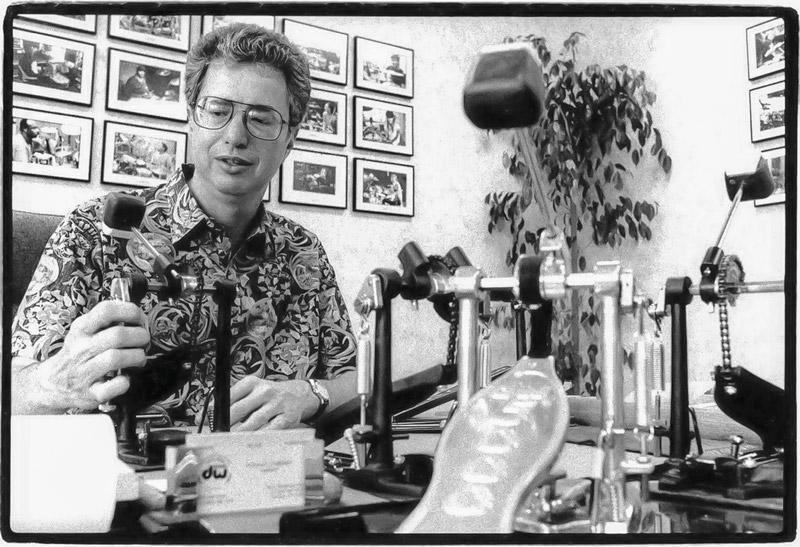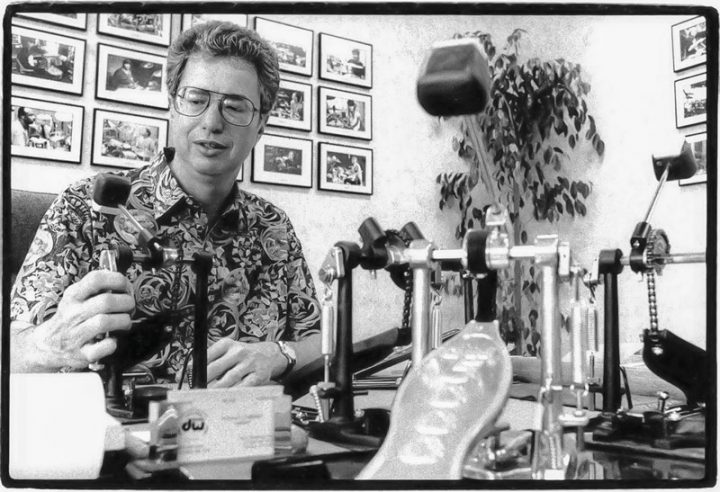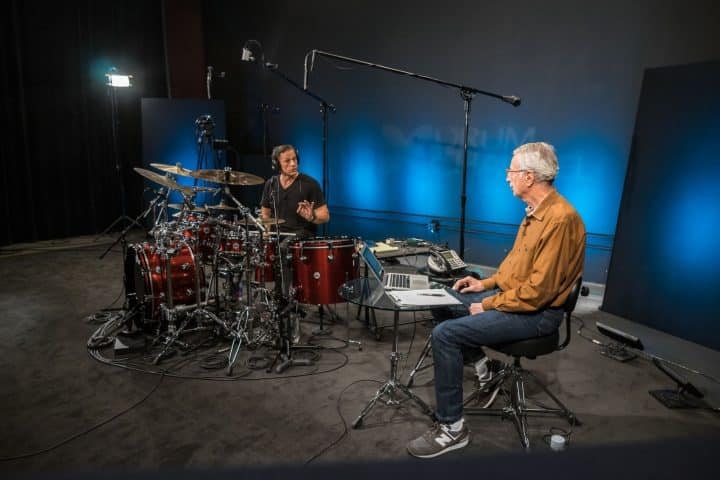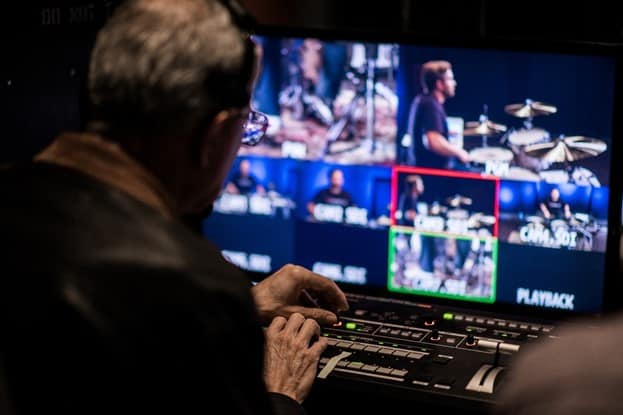MD Interview with Don Lombardi – Founder of Drum Channel & Drum Workshop – 12/10/20


Who did you study with and how did it affect your development as a drummer?
DL: I started taking lessons at the age of 12 with Nat Leslie, a local teacher. I also joined the union at age 14 when I got hired to play in a kid’s Dixie Land band where we performed in the Los Angeles area. At age 16 I was fortunate to study with great teachers, Nick Ceroli and Colin Bailey, and in my 20’s I had the incredible opportunity to study with Freddie Gruber for five plus years. They all covered unique areas of learning to play drums, which Freddie Gruber best verbalized as “Learning How to play, What to play and Why to play it.” It’s that formula that I built Drum Channel on and is what makes it unique.
Explain why having a teacher is important from the developmental and motivational perspectives.
DL: Having the mentorship and coaching from a great teacher is, in my opinion, more important for drummers than any other instrument. The difference being, you have to first learn how to play the drums. By that I mean, your body has to become the instrument that allows you to produce whatever you hear. It’s the “How” you play that many younger drummers don’t master. Then there is “What” to play and there are a million lessons by great drummers showing you what they do. And last, gaining the musicianship so you know when something fits in the music and when it does not.
People may not realize that Drum Workshop started as a drum school. Why did you decide to take your career in that direction and why, after a successful run with DW, did you go back to it with Drum Channel?
DL: Teaching was always a passion of mine. I started teaching at a local music store at age 16. After doing some touring I settled in LA with a full-time teaching schedule at age 20, teaching 40-50 students per week for almost 20 years. In starting DW I approached it very much the same way a teacher would approach a lesson. My goal was to help a drummer get better. It could be by making a pedal that would make it easier for drummers to play, or by giving drummers a double pedal to create something new. DW has always been into education but as the company grew it was hard to find time to focus on education. When my son took over the reins of CEO, doing most of the day-to-day, I decided instead of having an educational division of DW I wanted to tap into the greatest teachers of all-time so I started a separate business, DrumChannel.com.
Advertisement

For most of the 20th Century drummers could only hear their favorite players on records and radio and they could only see them play when they came to their town. How did DVD’s and YouTube change things, both for drummers and for drumming?
DL: It’s true, generations of drummers learn by listening to their favorite players, mostly on records and radio, and then trying to figure out how they did what they played. So you had to practice and keep trying different things to figure out how you could do it. If you had a good instructor they would be showing you what you should practice. YouTube is a huge asset for drummers as it brings the world together and gives you countless opportunities to see drummers playing things. The danger is you can start out learning to play drums by just seeing and copying what someone plays before you really develop the technique, the subtlety and dynamics of what it takes to make that sound so great. Also, learning by visually copying what someone is doing rather than listening to what someone is doing, is two different senses. It’s fine to see that you are doing the same thing, but the most important thing should be hearing what you are playing and why the drummer played it when he did.

Can someone become a good drummer by watching other drummers? Yes, you can certainly be self-taught and become a great drummer as long as you fill the most basic requirements, good time and good feel. But, without question, the best route for becoming an all-around great drummer with good chops and a huge vocabulary would be taking lessons.
From early on you had access to top professional players. At DW, you were able to develop strong relationships with great players of every style and era. How did being able to hang out with the world’s best drummers benefit you and how have you been able to share that advantage with Drum Channel members?
Growing up in the Los Angeles area, I was able to meet and become friends with many of the greatest drummers working here at that time. When I started DW that was a huge asset as we didn’t need to approach drummers to try things out. I would simply call them and say, hey check this out. It could have been Louie Bellson, Shelly Manne, Nick Ceroli, Ed Shaughnessy, Tommy Lee, Larrie Londin, Jim Keltner, and a long list of others. As DW grew that list grew and building Drum Channel it was again easy to connect with the best drummers in the world who were all anxious to give back with lessons, courses, and shows that we have on Drum Channel.
Advertisement


